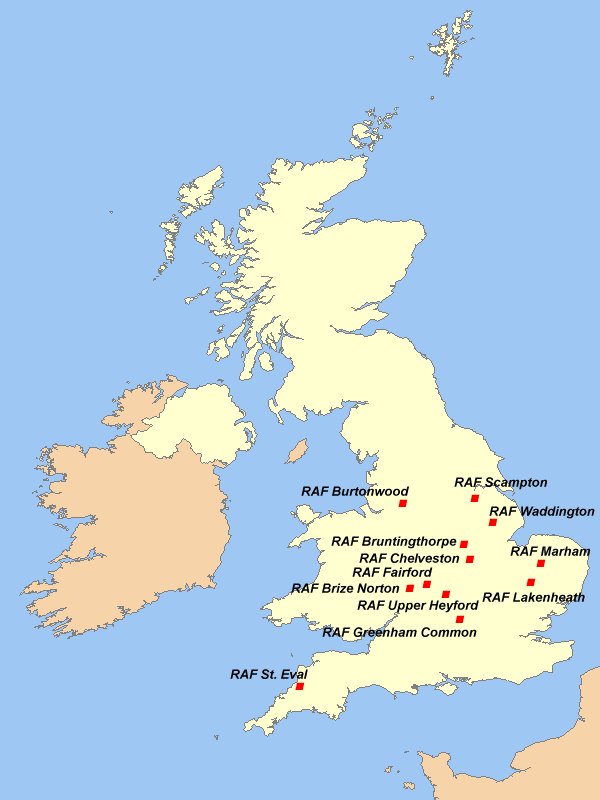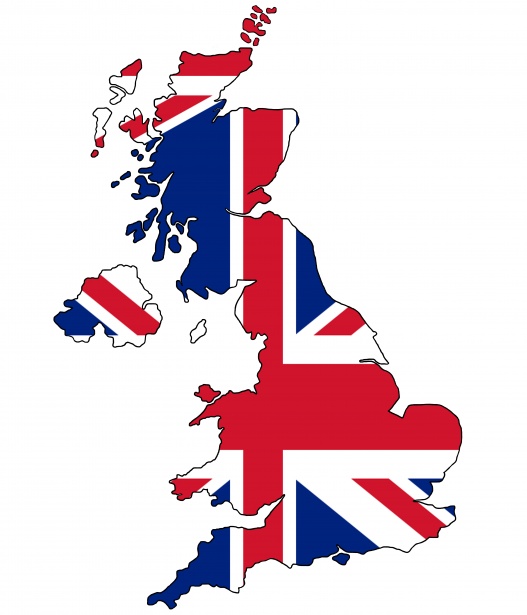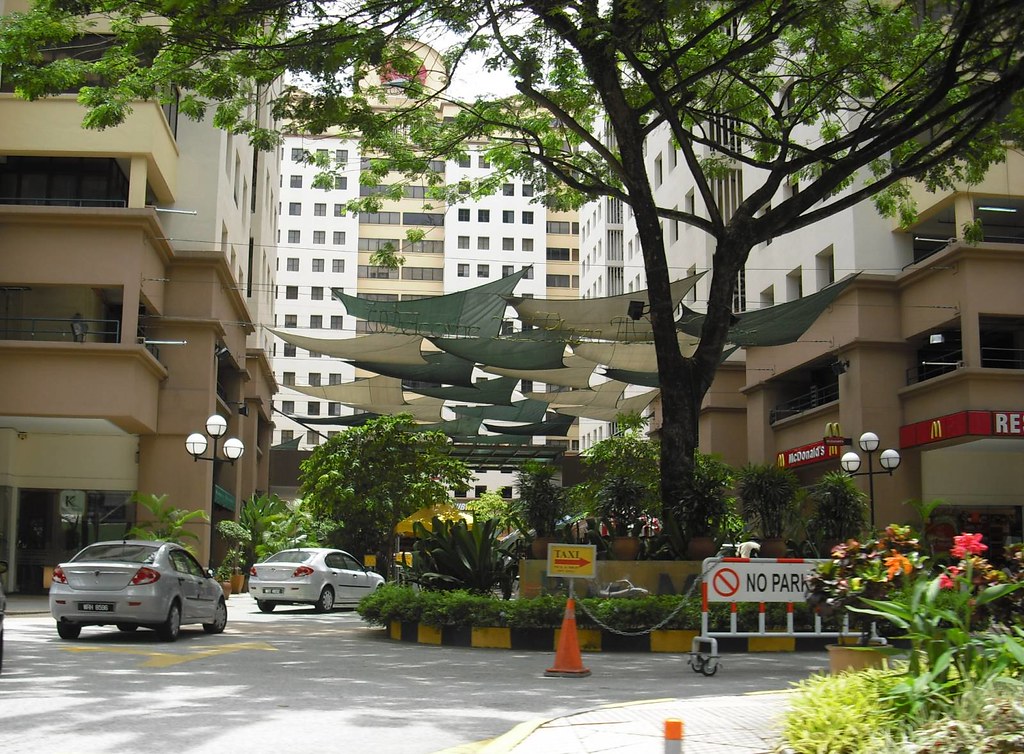Living in the UK can be an exciting and enriching experience for expatriates. From its rich history to vibrant culture, this diverse country offers numerous opportunities and adventures for those looking to make it their new home. However, moving to a new country can also pose certain challenges and uncertainties. That’s why we have put together this informative expat guide, designed to help you navigate the ins and outs of living in the UK. Whether you are in the process of planning your move or have already settled in, this comprehensive guide will provide you with all the essential information you need to ensure a smooth transition and a fulfilling life in the UK. In the following sections, we will explore topics ranging from visa requirements and accommodation options to healthcare facilities and transportation systems, providing invaluable insights and practical tips to help you face the exciting journey of living in the UK with confidence.
Finding Accommodation in the UK: A Comprehensive Guide for Expats
Choose the Perfect Place to Stay
If you’re an expat moving to the UK, finding suitable accommodation is undoubtedly one of your top priorities. With a wide range of options available, it can feel overwhelming at first. To make the process easier, consider the following tips:
- Research: Begin by researching the different regions in the UK to find the perfect match for your needs. Whether you prefer a bustling city or a serene countryside, understanding each area’s amenities and lifestyle will help narrow down your options.
- Identify your Budget: Determine a realistic budget to ensure you can comfortably afford your chosen accommodation. Remember to consider additional expenses such as utility bills, council tax, and maintenance costs.
- Consider your Needs: Make a list of requirements to help you filter through properties efficiently. Consider factors such as the number of bedrooms, proximity to public transportation, parking availability, and any specific amenities you desire.
- Use Reputable Websites: Utilize reliable websites that cater to expats to search for available properties. These platforms often provide detailed information, pictures, and contact details for landlords or agencies to streamline your search.
Understanding Tenancy Agreements
Once you’ve found suitable accommodation, it’s crucial to understand the tenancy agreement before committing. Here’s what you need to know:
- Length of Tenancy: Determine whether you’ll be signing a fixed-term or periodic tenancy agreement. Fixed-term agreements run for a specific period, typically 6 or 12 months. Periodic tenancies, on the other hand, have no set end date and can be terminated by either party with sufficient notice.
- Deposit: Familiarize yourself with the deposit requirements. Most agreements require a security deposit, typically one to two months’ rent, which will be returned at the end of your tenancy, provided the property is in good condition.
- Rent Payments and Notice Period: Understand the frequency and method of rent payments, as well as the notice period required when terminating the tenancy or renewing the contract.
- Responsibilities: Clarify your responsibilities as a tenant, including who is responsible for maintenance and repairs. Ensure any agreed-upon specifics, such as pet allowances or smoking policies, are clearly stated in the agreement.
Viewings and Moving Process
Preparing for property viewings and the moving process is essential to secure the perfect accommodation efficiently. Consider these points:
- Schedule Viewings: Contact landlords or agents to arrange viewings of the properties that interest you. Take note of any questions you have, and don’t hesitate to ask during the viewing.
- Inspect the Property: Thoroughly inspect the property during the viewing to ensure it meets your expectations. Check for any signs of damage, maintenance issues, or potential problems that may require attention.
- Application Process: Familiarize yourself with the application process and be prepared to provide necessary documentation, such as proof of income, references, identification, and credit checks.
- Organize Removal Services: Once you’ve secured a property, make arrangements for moving services well in advance to avoid any last-minute stress.

Understanding the UK Healthcare System: Essential Information for Expats
When moving to the United Kingdom as an expat, it is crucial to familiarize yourself with the country’s healthcare system to ensure you receive the necessary medical care. Here is some essential information that will help you navigate the UK healthcare system:
The National Health Service (NHS): The NHS is the primary healthcare provider in the UK, offering comprehensive healthcare services that are mostly free at the point of use. As an expat, you are entitled to NHS care if you are a legal resident and have paid the relevant taxes. You will need to register with a local General Practitioner (GP) to access NHS services. GPs provide primary care services and can refer you to specialists or hospitals as needed.
Health Insurance: While the NHS provides free healthcare, some expats opt to have private health insurance as a back-up or for extra services not covered by the NHS. Private health insurance allows you to access private healthcare facilities, skip waiting times, and choose your preferred specialist. However, it is important to note that private healthcare can be expensive, and it is advised to research different providers and policies to find the one that best suits your needs.
Prescription medications: The UK operates a prescription-based system for obtaining medications. If your GP prescribes medication, you will need to pay a standard fee per item, unless you are eligible for exemption. A range of exemptions exist, including for children, seniors, and those with certain medical conditions. It is advisable to check if you qualify for exemption to reduce the cost of necessary medications.
By understanding the UK healthcare system, including the NHS, health insurance options, and the prescription medication process, you can ensure you have the necessary knowledge to access the healthcare services you need as an expat living in the United Kingdom.

Navigating the UK Education System: Tips for Expat Families
Understanding the UK Education System
As an expat family settling in the UK, navigating the education system can seem daunting at first. Understanding the structure and terminology is crucial for making informed choices about your child’s education. Here are some key tips to help you get started:
- Preschool Education: Preschool education in the UK is known as Early Years Foundation Stage (EYFS). Children aged 3-4 attend nurseries or early learning centers, focusing on developing key skills through play and structured activities.
- Primary Education: Primary education starts at age 4 or 5 and lasts for seven years. It is divided into two stages: Key Stage 1 (ages 5-7) and Key Stage 2 (ages 7-11). During these years, children follow a broad curriculum covering subjects like English, math, science, and history.
- Secondary Education: Secondary education begins at age 11 and continues until 16 or 18. Key Stage 3 (ages 11-14) and Key Stage 4 (ages 14-16) make up the secondary curriculum. At the end of Key Stage 4, students typically take the General Certificate of Secondary Education (GCSE) examinations.
It’s important to research and consider the various types of schools available in the UK. These include state schools, which are funded by the government and follow the national curriculum, as well as private or independent schools that offer different curricula and often require tuition fees.
Furthermore, understanding the admission process and school catchment areas is crucial. Many schools have admission criteria, so it’s essential to check their requirements and deadlines. Additionally, familiarize yourself with school catchment areas, as this can affect your chances of securing a place at a preferred school.
By taking the time to understand the UK education system, you can ensure that you make the best choices for your child’s educational journey. Researching schools thoroughly, attending open days, and seeking advice from local authorities will provide you with the necessary information to navigate this exciting new chapter in your family’s life.

Transportation in the UK: Getting Around like a Local
Exploring the United Kingdom like a local means immersing yourself in its efficient and extensive transportation system. Whether you want to wander the vibrant streets of London, explore the historic towns of England, or venture into the breathtaking landscapes of Scotland, having a good grasp of local transportation options will make your journey seamless and enjoyable.
1. Public Transport:
Public transport in the UK is highly efficient and well-connected, making it an excellent choice for getting around. From bustling cities to charming countryside, you’ll find an extensive network of buses, trams, and trains. In cities like London, the world-famous Underground, commonly known as the ‘Tube,’ offers a convenient way to navigate through various neighborhoods quickly. Additionally, buses cover areas that are not served by the Tube, granting you access to hidden gems within the city.
2. Iconic Black Cabs:
For an authentic and quintessential British transportation experience, hailing an iconic black cab is a must. These traditional taxis can be found on the streets of major cities across the UK. Renowned for their knowledgeable drivers and spacious interiors, black cabs offer a comfortable and reliable way to explore the city, as well as strike up interesting conversations with friendly locals who often double as tour guides.
3. Embrace Cycling:
The United Kingdom is increasingly cycling-friendly, with dedicated bike lanes and rental schemes available in most cities. Embrace the local culture by hopping on a bike and pedaling through scenic routes. From exploring picturesque parks to navigating historic landmarks, cycling provides a unique perspective and allows you to embrace a healthy and sustainable way of getting around.
4. Regional Trains:
If you’re planning to venture beyond the city limits, regional trains are your gateway to historical landmarks, charming villages, and breathtaking natural wonders. The UK boasts an extensive railway network, with well-connected routes stretching across the country. From the iconic Hogwarts Express in Scotland to the stunning coastal routes in Wales, regional trains offer a scenic and efficient way to explore the diverse beauty of the UK.
By immersing yourself in the UK’s transportation system, you’ll discover the freedom to wander and access a myriad of experiences beyond the typical tourist path. From iconic black cabs to countryside trains, embrace the local way of getting around, connecting with the rich tapestry of this captivating country.

Exploring British Culture: Customs, Etiquette, and Traditions for Expats
Welcome to the fascinating world of British customs, etiquette, and traditions! As an expat in the United Kingdom, understanding the cultural nuances will not only help you integrate better, but also enhance your experience in this diverse country. Here are some key aspects to keep in mind:
1. Polite Society
Brits are known for being polite and courteous, so learning a few social conventions can go a long way. Remember to say “please” and “thank you” as often as possible, especially when ordering food, asking for directions, or during any social interaction. Avoid talking loudly or causing a scene, as public displays of emotion are generally frowned upon. It is customary to line up in an orderly fashion and wait for your turn in queues, so be patient and follow the established order.
2. Afternoon Tea
While you may have heard of afternoon tea, experiencing it firsthand is a must! This quintessential British tradition involves enjoying a cup of tea accompanied by an array of finger sandwiches, scones with clotted cream and jam, and indulgent pastries. When attending an afternoon tea, it is customary to hold your teacup by the handle with your pinky down, and to stir your tea gently rather than vigorously. Embrace the elegance and take your time savoring this delightful ritual.
3. Toasting and Pubs
In British culture, toasting is an important social ritual. When raising your glass for a toast, make sure to make eye contact with everyone present and express a brief, heartfelt sentiment. If you find yourself in a traditional British pub, be aware of the “round system” where each person takes turns buying a round of drinks for the group. It is considered impolite to skip your turn or leave without contributing. Furthermore, pub etiquette dictates that you should order your drinks at the bar and find a seat afterward, rather than waiting for table service.
By immersing yourself in the customs, etiquette, and traditions of British culture, your time as an expat in the United Kingdom will be enriched. Embrace the politeness, indulge in afternoon tea, and enjoy the camaraderie of toasting in a pub. Remember, each country has its own unique cultural tapestry, and it is through understanding and appreciating these nuances that we truly become citizens of the world.

Making Friends and Building a Social Life as an Expat in the UK
Moving to a new country can be both exciting and challenging, especially when it comes to creating a social life as an expat in the UK. However, with a little effort and an open mind, you can quickly build a network of friends and enjoy all that this vibrant country has to offer.
1. Join Expat Communities: One of the easiest ways to meet fellow expats and make friends is by joining expat communities in your area. These communities often organize social events, language exchanges, and cultural activities, allowing you to connect with people who share similar experiences and interests.
2. Attend Meetup Events: Another fantastic way to expand your social circle is by attending Meetup events. Whether you’re into hiking, photography, or trying out new cuisines, you’ll find a group of like-minded individuals eager to meet new people and explore the UK together. These events provide a relaxed and casual environment to connect with others, making it easier to foster new friendships.
3. Explore Local Activities: The UK offers a plethora of activities to suit every interest. Whether you’re interested in joining a sports club, taking up a new hobby, or volunteering for a local charity, getting involved in the local community is an excellent way to meet new people. Don’t be afraid to step out of your comfort zone and try something new – you never know who you might meet along the way!
4. Utilize Online Platforms: In today’s digital age, online platforms can provide an effective avenue for making friends. Join expat forums, social media groups, or use dedicated apps designed to connect people in your city. These platforms offer a convenient way to find local events, make plans, and meet new friends with ease.
Remember, building a social life as an expat takes time and effort. Be patient, be open-minded, and embrace all the exciting opportunities that come your way. With a proactive approach and a willingness to step outside of your comfort zone, you’ll soon find yourself immersed in an enriching social life in the UK. So, go ahead, make the most of your expat experience and forge lifelong friendships!
Final Thoughts
In conclusion, living in the UK as an expat can be a truly enriching and rewarding experience. This expat guide has aimed to provide you with a comprehensive overview of the key aspects you need to consider before making the move, ensuring a smooth transition into your new life.
From understanding the visa requirements and healthcare system to exploring the diverse cultural landscape and navigating the housing market, the UK offers expats a wide range of opportunities and challenges. By familiarizing yourself with the local customs, laws, and practicalities, you will be better equipped to settle in and embrace the unique British way of life.
While the weather may be a topic of discussion, the UK’s rich heritage, stunning landscapes, and vibrant cities make it a desirable destination for individuals seeking adventure, professional growth, or educational opportunities. With its excellent transport links, countless entertainment options, and strong sense of community, you will find plenty to immerse yourself in, whether you choose to live in bustling London or explore the picturesque countryside.
It is important to note that as an expat, you may encounter cultural differences and challenges that require patience and open-mindedness. However, the UK’s welcoming atmosphere and multicultural outlook will undoubtedly ease your integration process and provide you with opportunities to connect with people from all walks of life.
We hope that this guide has provided you with valuable insights into what to expect when living in the UK as an expat. Whether you’re relocating for work, education, or personal reasons, embracing the diversity and opportunities that this vibrant nation offers will undoubtedly make your experience all the more fulfilling.
So, pack your bags and embark on this new adventure with confidence, knowing that you have the knowledge and resources to navigate your way through the intricacies of expat life in the UK. While challenges may arise, they will be balanced by the countless rewards and unforgettable experiences that await you in this captivating country. Best of luck on your British journey!





